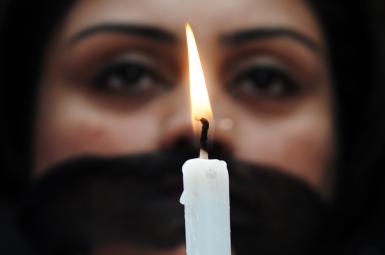
Has Iran Government Ended Special Dollar Rate For Essential Imports?
Recent price rises of basic goods shows the government has almost stopped supplying dollars below market rates to pay for essential imports, an economist has said. "I don't think anything has remained of [dollars available at] the government rate,” Ehsan Soltani was quoted as saying Monday by the Iranian Labour News Agency (ILNA). “They may still be allocating it to certain pharmaceutical products but the surge in the prices is indicative of the elimination of the 42,000 rial rate [to the dollar]."
According to Soltani, 63-percent year-on-year inflation in June would have been 25-30 percent had the lower dollar rate been used to import basic goods. This, he said, “clearly indicates that allocation of foreign currency at the government rate has already stopped."
Critics of the Rouhani administration charged the gap between an official rate of 42,000 rials to the dollar − introduced to guarantee imports of basic goods and commodities − and the market rate led to huge corruption as those favored by the government filled their pockets. Principlists in parliament in February included the elimination of the special rate in the budget law for the current calendar year (March 2021-2), which some argued would increase the level of rials available for the government to distribute to the less well-off.
The rate was announced in April 2018 by vice-President Es’hagh Jahangiri, a few months after the rial began to drop in anticipation of the United States leaving Iran’s 2015 nuclear deal, the JCPOA (Joint Comprehensive Plan of Action). At that time, the market exchange rate was close to 60,000 rials to the dollar. Since then, in the face of draconian US sanctions that reduced Iran’s foreign earnings from oil sales, the rial has fallen to 2.5 million against the dollar on the open market, recovering somewhat from 3 million in late September and early October after the victory of Joe Biden in the November US presidential election.
Soltani told ILNA that the consequences of the lack of lower-rate dollars to pay for imports had the greatest consequences for low-income groups, and that stopping the scheme could not be justified by allegations over profiteering. The Iranian government's lack of funds to allocate dollars to importers at the special rate has also created serious problems for importers: recent reports indicate an unprecedented amount of basic goods in recent months have remained in customs because importers cannot obtain sufficient dollars to pay foreign vendors.



